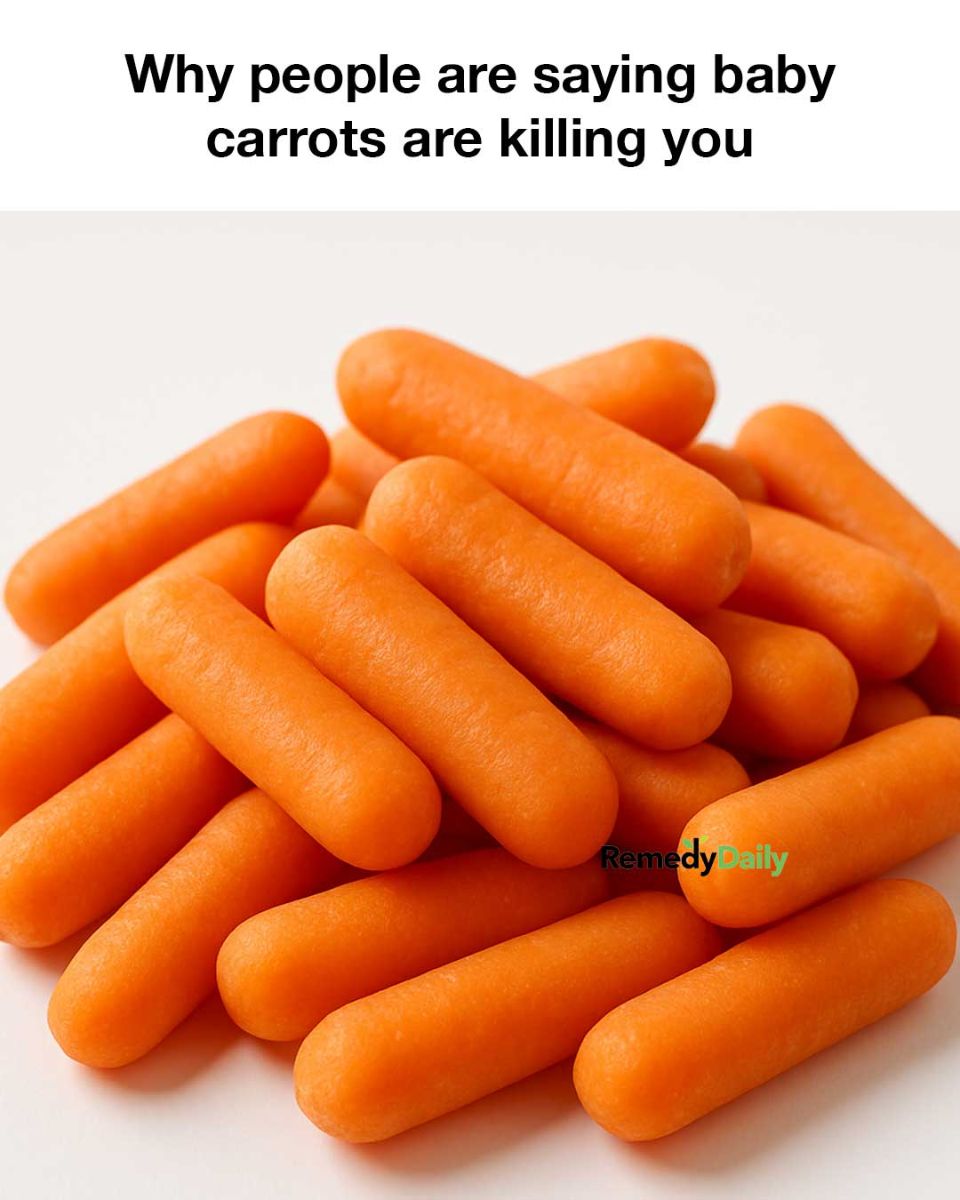In recent years, a growing number of health-conscious consumers have raised concerns about the safety and health implications of consuming baby carrots. This controversy stems from various factors, including their manufacturing process, chemical treatments, and nutritional value. The debate has sparked widespread discussion, with some claiming that baby carrots are not as healthy as they appear, while others argue that these concerns are overblown. This article delves into the origins of these claims and examines the evidence behind the assertion that baby carrots might be harmful to your health.
The Origins of Baby Carrots: A Processed Product
Baby carrots, contrary to popular belief, are not naturally occurring miniature carrots. They are a processed product, created in the 1980s by a California farmer named Mike Yurosek. Faced with the challenge of selling imperfect carrots that were often discarded due to their appearance, Yurosek devised a method to peel and cut these carrots into uniform, bite-sized pieces. This innovation not only reduced food waste but also transformed the way carrots were marketed and consumed. However, the processing involved in creating baby carrots has led to questions about their nutritional integrity and safety.
Advertisement
Understanding the Manufacturing Process of Baby Carrots
The production of baby carrots involves several steps, starting with the selection of full-sized carrots that are deemed too unattractive for sale as whole carrots. These carrots are then machine-cut into smaller pieces, peeled, and shaped into the familiar baby carrot form. The peeling process removes the outer layer of the carrot, which contains fiber and nutrients. This manufacturing process, while efficient, raises concerns about the potential loss of nutritional value and the introduction of chemicals during processing.
The Role of Chlorine in Baby Carrot Production
One of the most contentious aspects of baby carrot production is the use of chlorine in their processing. After being cut and peeled, baby carrots are typically washed in a diluted chlorine solution to kill bacteria and extend shelf life. While the chlorine levels used are within the safety limits set by regulatory agencies, some consumers worry about the potential health effects of consuming residual chlorine. Critics argue that even trace amounts of chlorine could pose risks, particularly with long-term consumption.
Nutritional Concerns: Are Baby Carrots Less Healthy?
Nutritional experts have debated whether baby carrots are less healthy than their whole counterparts. The peeling process removes the outer layer of the carrot, which contains fiber and some nutrients. As a result, baby carrots may have slightly lower levels of certain vitamins and minerals compared to whole carrots. However, they still retain most of their nutritional value, providing a good source of beta-carotene, vitamin K, and antioxidants. The convenience of baby carrots often encourages increased vegetable consumption, which is a positive aspect of their popularity.
Chemical Exposure: The Risks of Consuming Baby Carrots
The potential risks associated with consuming baby carrots primarily revolve around chemical exposure during processing. While the chlorine wash is a standard food safety procedure, some studies suggest that frequent consumption of foods treated with chlorine could have adverse health effects. However, there is limited scientific evidence directly linking baby carrot consumption to significant health risks. Consumers concerned about chemical exposure can mitigate risks by thoroughly rinsing baby carrots before consumption.
Environmental Impact: The Carbon Footprint of Baby Carrots
The environmental impact of baby carrot production is another factor contributing to the controversy. The processing and packaging of baby carrots require additional energy and resources compared to whole carrots. This includes the machinery used for cutting and peeling, as well as the plastic packaging commonly used for distribution. These factors contribute to a higher carbon footprint, raising concerns among environmentally conscious consumers who prioritize sustainable food choices.
The Marketing Myth: How Baby Carrots Are Sold as Healthy
Baby carrots are often marketed as a healthy, convenient snack option, appealing to busy consumers looking for quick and nutritious food choices. However, some critics argue that this marketing oversimplifies the nutritional differences between baby carrots and whole carrots. The perception of baby carrots as a 'health food' may lead consumers to overlook the potential downsides of processing and chemical exposure. Understanding the marketing strategies behind baby carrots can help consumers make more informed choices.
Consumer Perception: Why People Are Worried About Baby Carrots
The growing concern over baby carrots is fueled by a combination of factors, including increased awareness of food processing practices, a desire for natural and unprocessed foods, and skepticism towards chemical treatments. Social media and online platforms have amplified these concerns, with some individuals sharing anecdotal evidence and opinions that may not be scientifically substantiated. This has led to a heightened sense of caution among consumers who are wary of potential health risks.
Comparing Baby Carrots to Whole Carrots: A Nutritional Analysis
When comparing baby carrots to whole carrots, there are some notable differences in nutritional content. Whole carrots retain their outer skin, which contains additional fiber and nutrients. While baby carrots still provide essential vitamins and minerals, the peeling process results in a slight reduction in nutritional value. However, the convenience and accessibility of baby carrots often lead to increased vegetable consumption, which can be beneficial for overall health. Consumers should weigh the pros and cons based on their dietary preferences and priorities.
Advertisement
Conclusion: Should You Be Concerned About Baby Carrots?
In conclusion, while there are valid concerns about the processing and chemical treatment of baby carrots, the evidence does not conclusively support the claim that they are harmful to health. Baby carrots remain a convenient and nutritious snack option for many people. However, consumers who are concerned about chemical exposure or environmental impact may choose to opt for whole carrots or organic alternatives. Ultimately, making informed choices based on personal health goals and values is key to navigating the baby carrot controversy.

